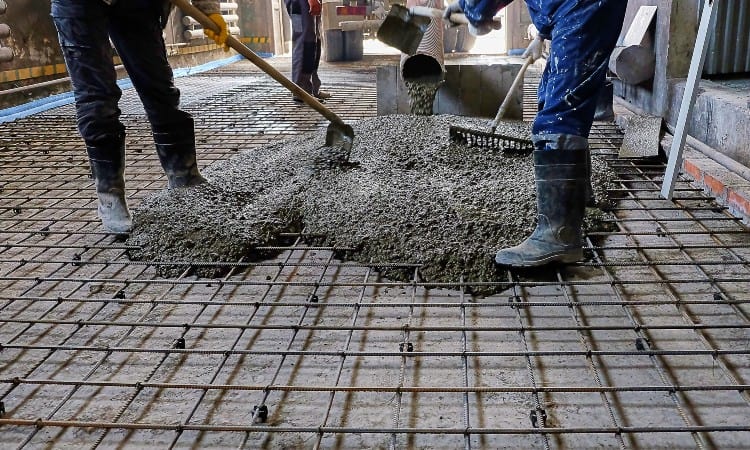Building with hemp is a sustainable material that utilizes readily-available resources, reducing shipping costs and pollution, while its fireproof nature saves both time and money compared to materials that require extra steps for fireproofing.
Durability
Concrete lasts significantly longer than other building materials, meaning less frequent replacement needs and reduced environmental impacts associated with producing new materials.
Concrete buildings are highly resistant to damage from humidity and rain, as its composition contains minimal organic matter that could rot or rust over time. Moisture enters through joints; annual inspection and repair will prevent excess moisture entering through these passageways.
Additionally, concrete’s durability means it doesn’t need extra steps like fireproofing – saving building owners both time and money while making buildings safer from day one. Plus, its composition of calcium silicate hydrate makes it naturally fire-resistant up to 910 degrees Celsius!
Energy Efficiency
Concrete can help lower energy costs by absorbing and dissipating heat throughout the day, acting like an energy storage unit to regulate indoor temperatures without the need for artificial climate control systems.
Concrete house slabs Melbourne is an extremely robust building material that offers numerous advantages when applied to commercial construction projects. Not only is it highly versatile, but its return-on-investment returns are impressive too.
Concrete’s durability means it resists wear and tear that could otherwise increase utility bills, while also requiring less maintenance and repairs than structures made of other materials.
Concrete’s insulating properties help lower energy expenses, and its lack of air infiltration keeps occupants comfortable without running fans or spraying for pests. Furthermore, soundproofing properties make concrete ideal for hospitals and private practices where noise disturbance can affect patient recovery while straining surgeons’ hearing – this factor alone led many medical facilities to select concrete over other building materials for medical buildings.
Structural Integrity
Concrete structures can withstand frequent use and exposure without suffering wear or tear, thanks to precision used during their construction. Formwork and reinforcement must always be carefully considered during development – a top concrete construction company pays close attention to such details when crafting its structures.
Concrete can be poured, pumped, sprayed or formed into various shapes to meet the needs of any given project more quickly and cost effectively. This allows for faster construction times.
Certain forms of concrete also reflect heat instead of absorbing it, making for more effective cooling with reduced effort and lower energy costs. Furthermore, unlike some metals such as iron and copper, concrete does not rust, eliminating an expensive maintenance issue while preventing repairs in the future and making concrete the most sustainable building material available today.
Versatility
At a time when environmental and sustainable construction are becoming more important, concrete provides the ideal combination of strength, cost-effectiveness, versatility, sustainability and fire resistance – in addition to noise-reducing properties and energy-efficiency benefits.
Concrete has great reflective properties that help keep buildings cooler in summertime, thus cutting air conditioning costs and helping avoid urban heat islands that result from human activities like building. This also serves to prevent urban heat islands which result from human activities like construction.
Concrete’s soundproof properties create peaceful spaces for occupants and workers. Furthermore, unlike wood buildings, which require painting or coating to protect it from moisture damage or fading, maintenance costs for concrete buildings are reduced significantly. Furthermore, unlike wood structures which attract vermin and insects that necessitate pesticide use that could harm humans directly, concrete structures don’t offer this benefit and don’t necessitate pesticide sprays that may contain chemicals harmful to their inhabitants or workers.
Fire Resistance
Concrete is one of the best building materials to use for fire resistance, as it naturally noncombustible and chemically inert, providing impenetrability against flames.
Concrete has the unique capability of withstanding extreme heat for hours without succumbing to structural failure, due to its ability to resist thermal energy transfer.
Concrete also acts as an insulator, slowing the rate at which heat travels to protect other parts of a building and stop fire from spreading while remaining safe for its occupants. Different concrete types have different levels of fire resistance depending on which aggregates they use: some use normal-weight siliceous carbonate aggregates while others utilize limestone, lime rock or lightweight aggregates that offer higher fireproofing abilities.

